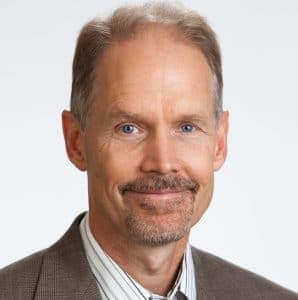It’s a rare conversation when Christians discuss how to live a holy life. Indeed, conversations often lean toward embracing a form of grace that does not appear in the Bible and results in people feeling less convicted about sinful habits and repeated failures to follow God.
Absent of a call to holiness, this strange approach to Christianity only engenders disappointment and defeat. No wonder so many believe that Christianity doesn’t work and leave the faith. A recent public example of Christian apostasy is bestselling author and pastor Joshua Harris. Similarly, it appears that the questioning of Hillsong worship leader Marty Sampson is leading him down the same path.
This misguided form of grace is empowered in American church culture by self-appointed legalism police who proclaim that we are laying unrealistic burdens upon people if we teach that God might actually want His people to make difficult lifestyle changes and that failure to do so will have consequences. Despite the popularity of this message, history shows that just the reverse is true. When holiness is preached, people repent of waywardness and sin, and the glory of God descends upon their lives—and ultimately upon their nation.
Years ago, I found myself experiencing a desire to love God more and wanting to be like Him in every way. This produced a desire to live a holy life. Instead of thinking, “That’s impossible – that will never happen”—my usual response at that time to such a feeling—suddenly I received a deposit of faith in my soul empowering me to live such a life.
Since that initial shift in my spirit, I’ve come to a fuller understanding of the why’s and how’s behind holiness. In light of the present environment in our churches, and ultimately in our nation, I can’t think of a more important topic.
Why holiness?
Your well-being depends on living a holy life, and so does the future of our churches and nation. The writer of Hebrews reminds us, “Make every effort to live in peace with everyone and to be holy; without holiness no one will see the Lord . . . . See that no one is sexually immoral, or is godless like Esau, who for a single meal sold his inheritance rights as the oldest son. Afterward, as you know, when he wanted to inherit this blessing, he was rejected. Even though he sought the blessing with tears, he could not change what he had done” (Heb. 12:14–17 NIV, emphasis added).
Did you catch those phrases linking holiness and sexual immorality? In a nation where sexual perversions—including pornography within the church—have become commonplace, it is vital that we love God by contrasting the culture through sexual purity. Until we do, we will limit our ability to experience His presence.
Looking at the larger scope, America was changed by holiness preachers and hungry congregants during the 18th and 19th centuries. Throughout this era, Christian leaders from a broad swath of churches such as Jonathan Edwards, George Whitefield, Francis Asbury, Charles Finney, Phoebe Palmer, Lyman Beecher, A.B. Simpson, and D.L. Moody called people to holiness. These influential pastors and authors did not consider holiness to be a burden. Rather, they believed holiness was the greatest thrill the human soul can experience! Moreover, their testimonies and the fruit of their ministries demonstrate that holiness within the church has the power to change a nation!
In our present situation, it should alarm us that so few are calling God’s people to holiness. If God’s people will not embrace holiness, how will a nation? Without men and women fully consecrated to God guiding our nation out of its struggles and sinful practices, America will greatly suffer and eventually collapse. Put another way, political figures can only take our nation so far. Ultimately, the solution is moral and spiritual, not political. As such, the church must fully engage because moral and spiritual issues are the domain of the church.
Keep in mind that the church is comprised of individuals. How then do we make progress in living a holy life?
Experiencing a holiness
Holiness is a process: “In light of these great promises, dear brothers, purify yourselves from everything that contaminates body and spirit perfecting holiness out of reverence for God” (2 Cor. 7:1, NIV, emphasis added). Here the Apostle Paul teaches us to take one faith-filled step at a time by removing everything that stains one’s soul and disturbs our fellowship with God.
Again, this is a process—what Paul calls “perfecting holiness.” Recognizing this, we need to start talking about holiness during our Sunday morning services. Rather than fearing that this topic will scare people away, we need to learn from our own history—realizing that holy churches experiencing the presence of a holy God will see more people come to faith, and likely more people come to experience the “main attraction.” What is that main attraction? God Himself and His favor in our midst!
Your choice
In summary, compromised lives and churches will observe compromised results, and severely compromised lives and churches will experience severely compromised results. If God’s people cannot see the Lord apart from holiness—that is fully experience the presence of the Lord and His blessings apart from holiness—how can a nation? If we as the church ever hope to positively influence our nation, we must stand in contrast to the darkness. We must be shining lights, but this begins with a willingness and a determination to embrace personal holiness.









